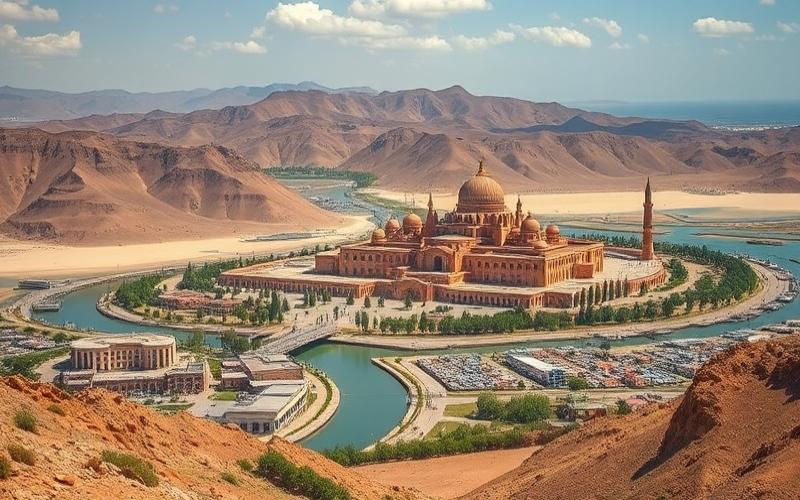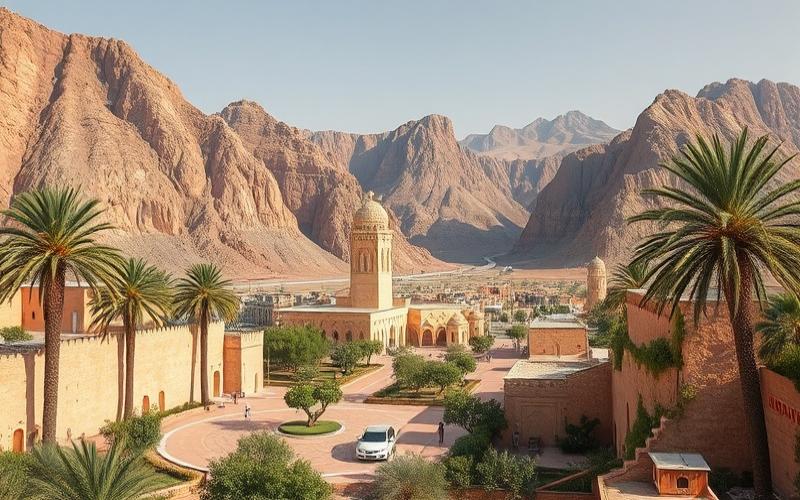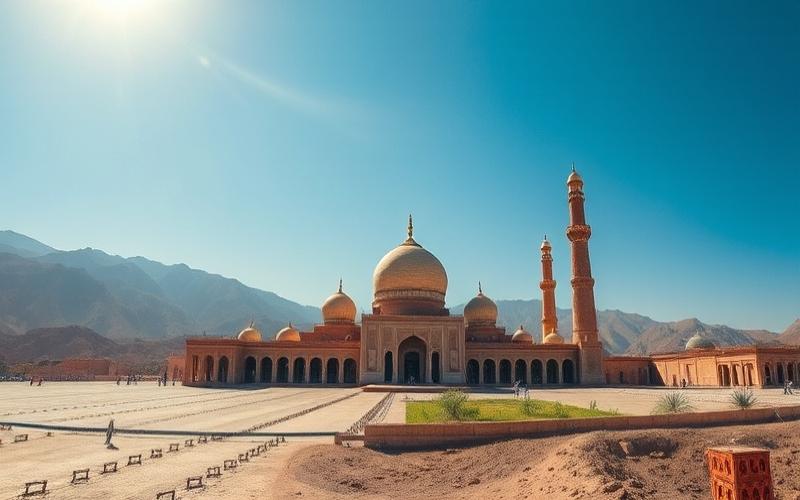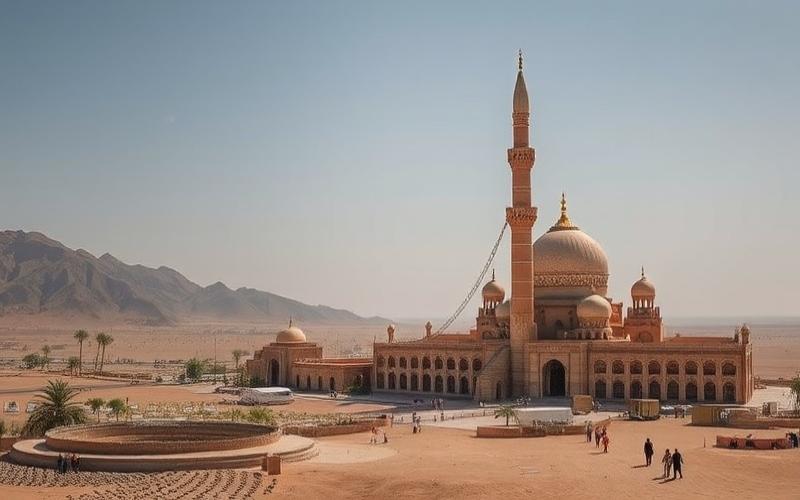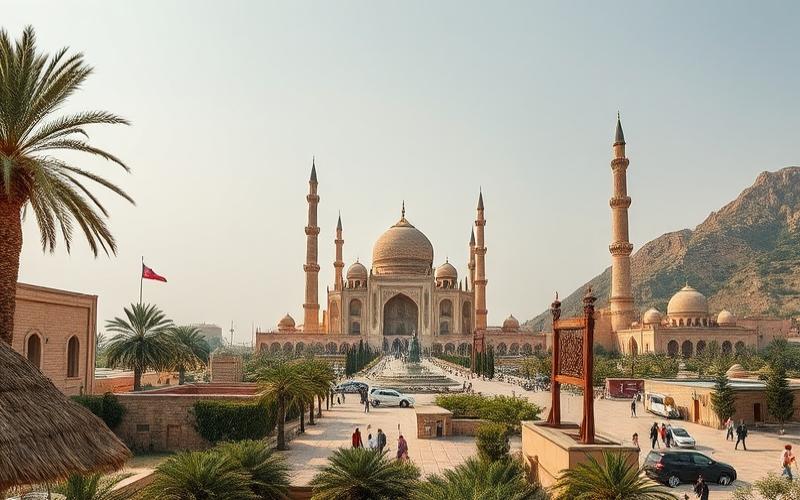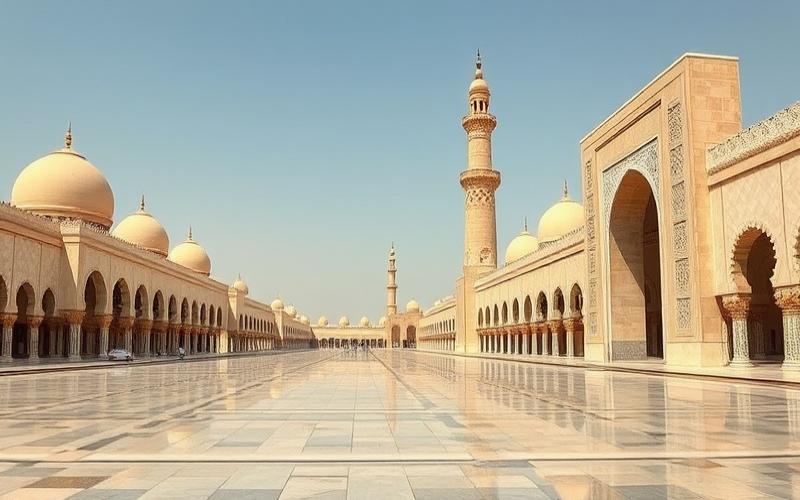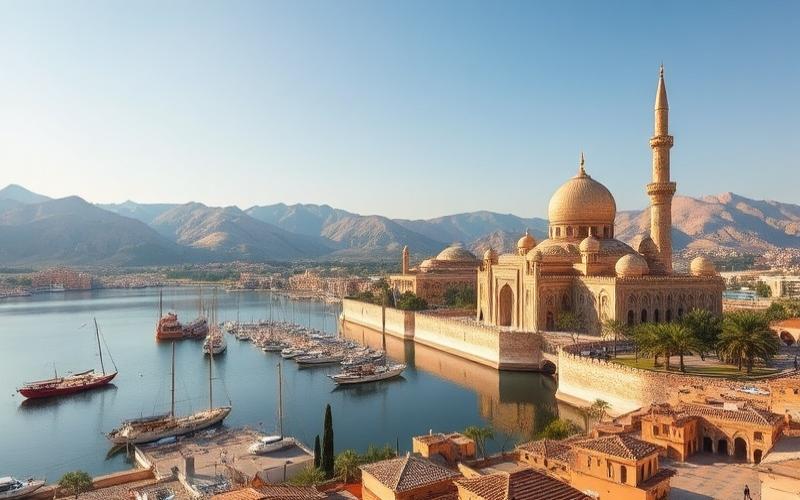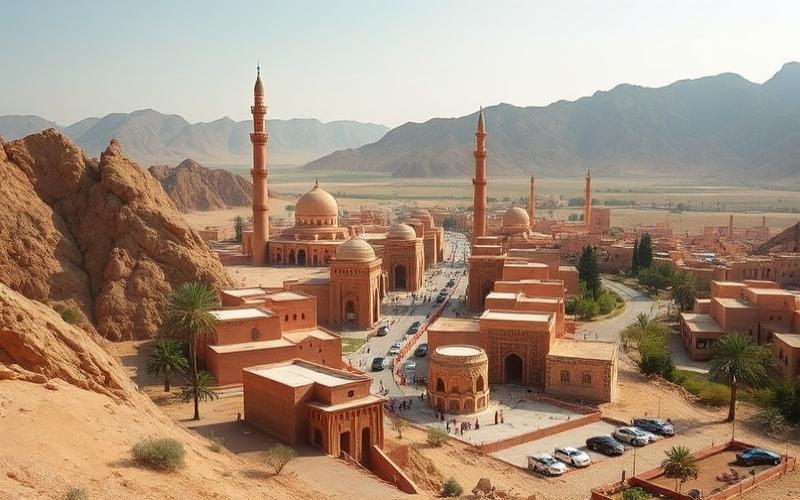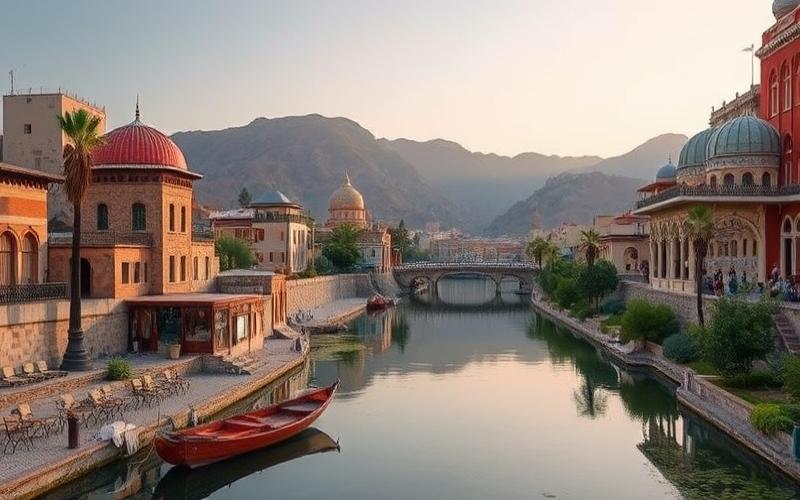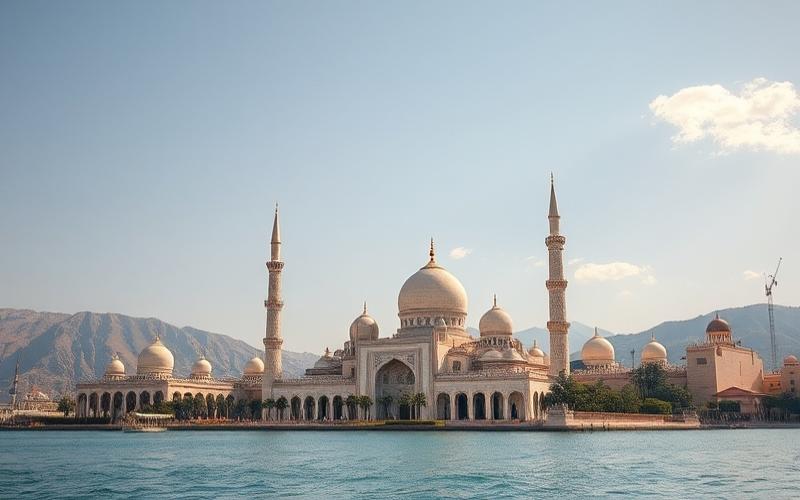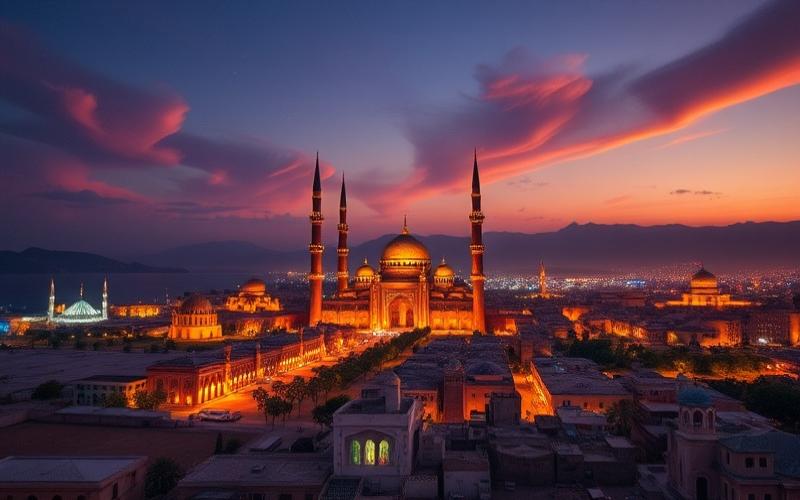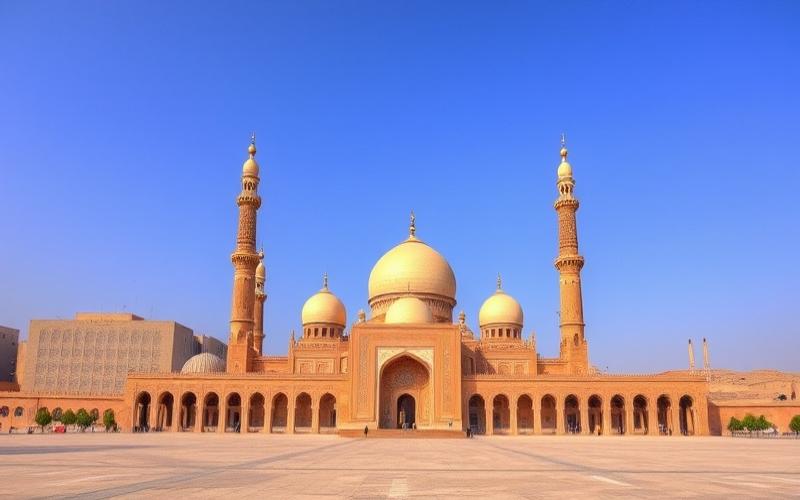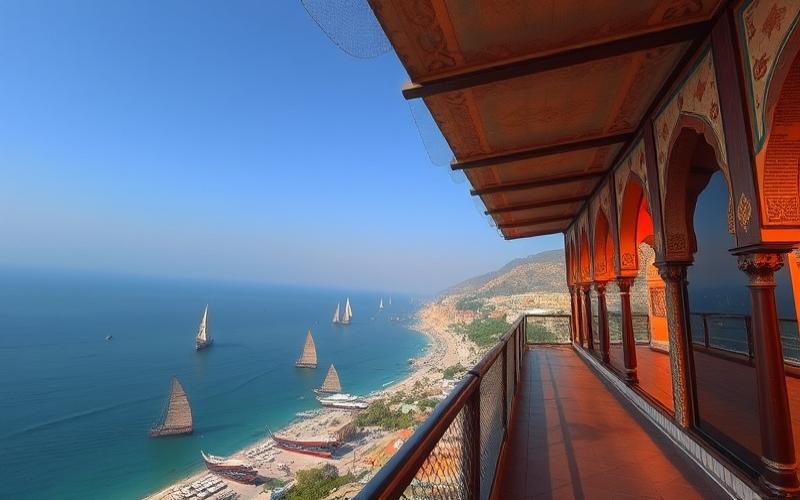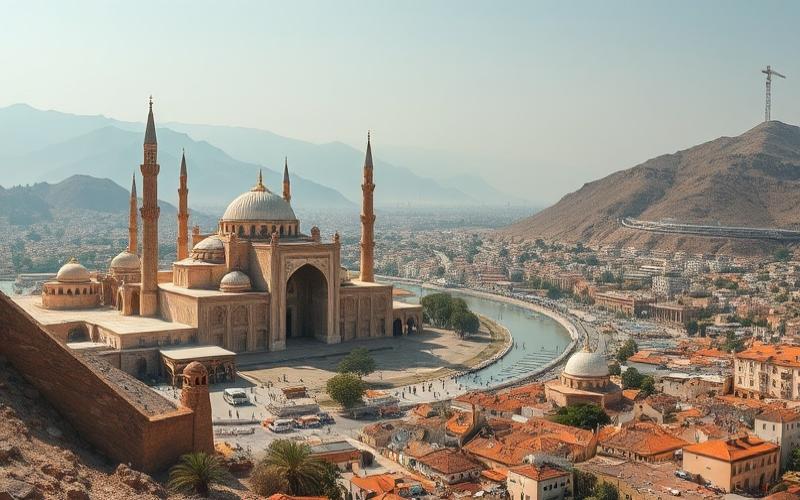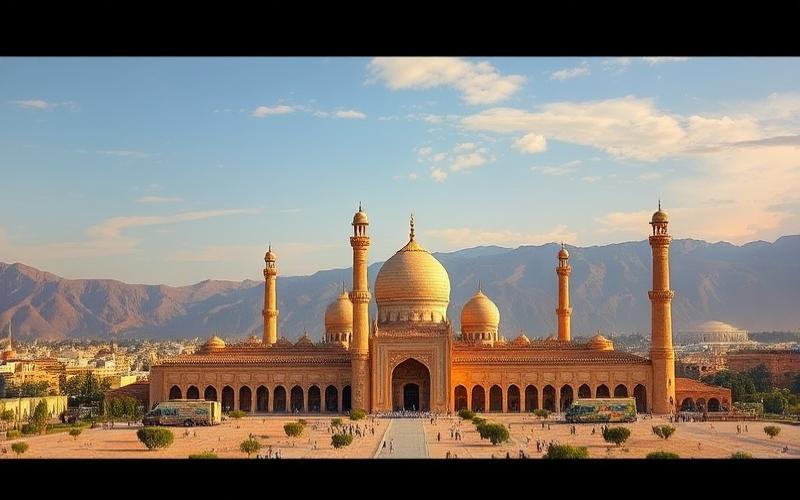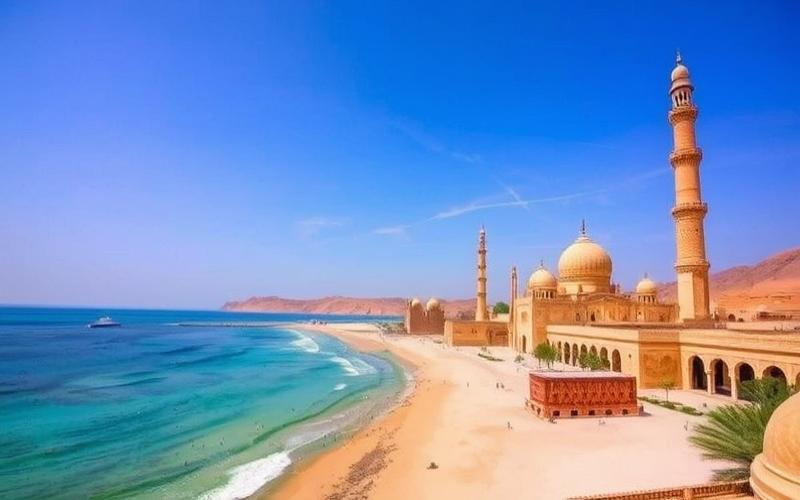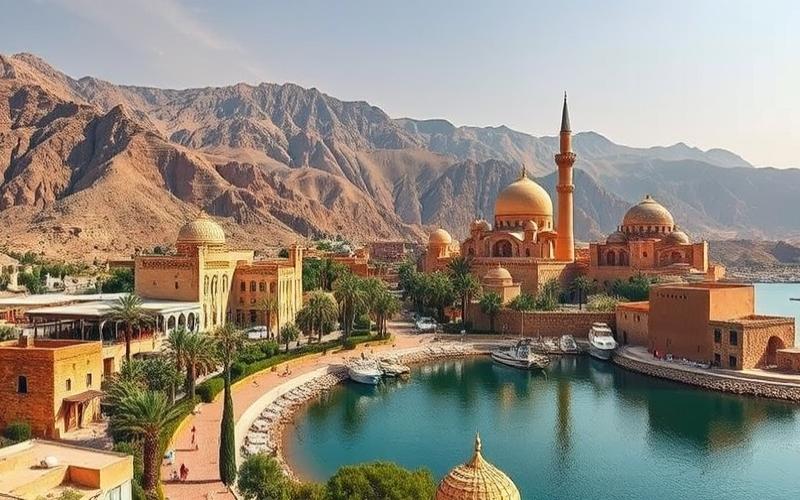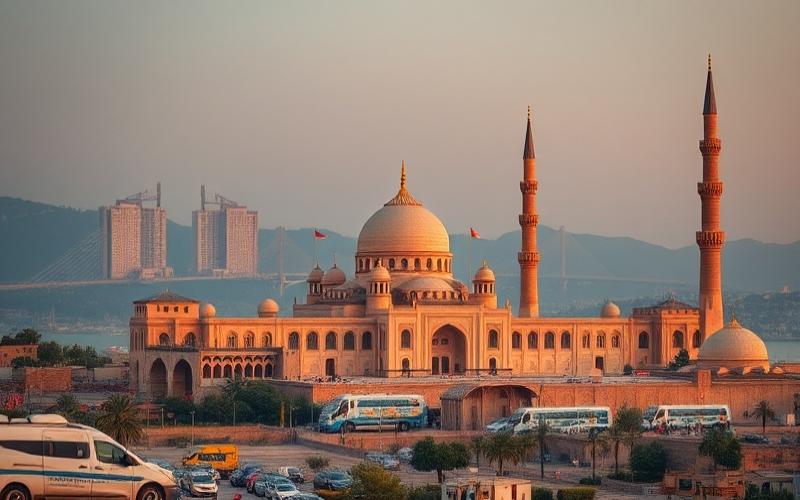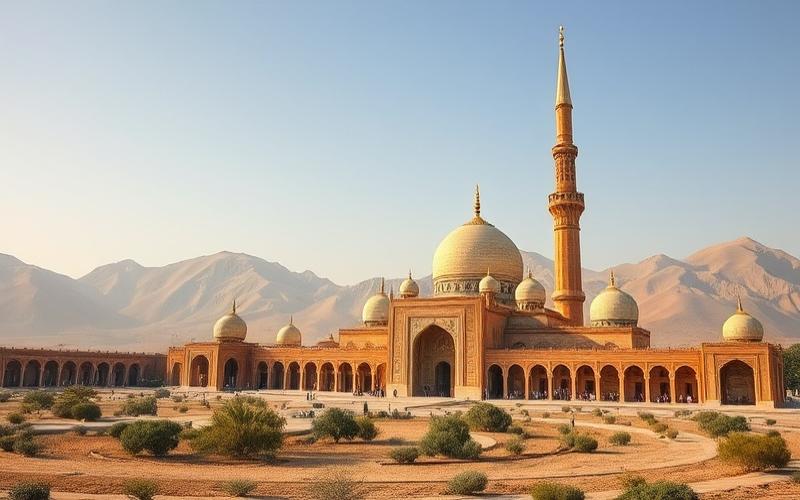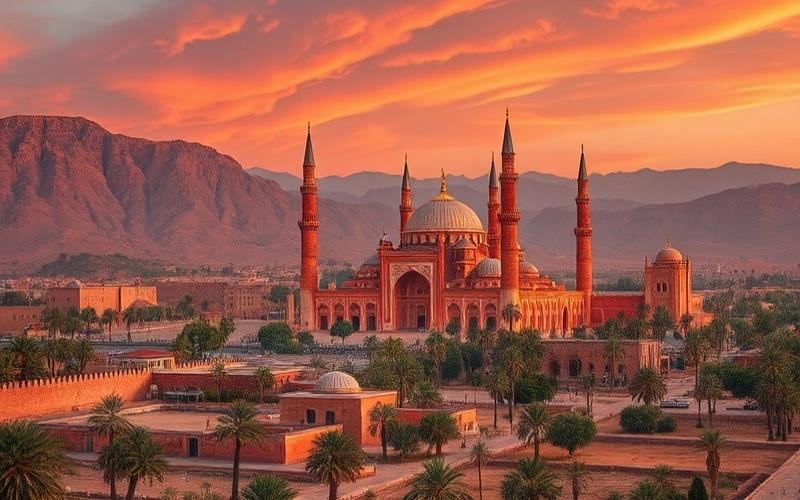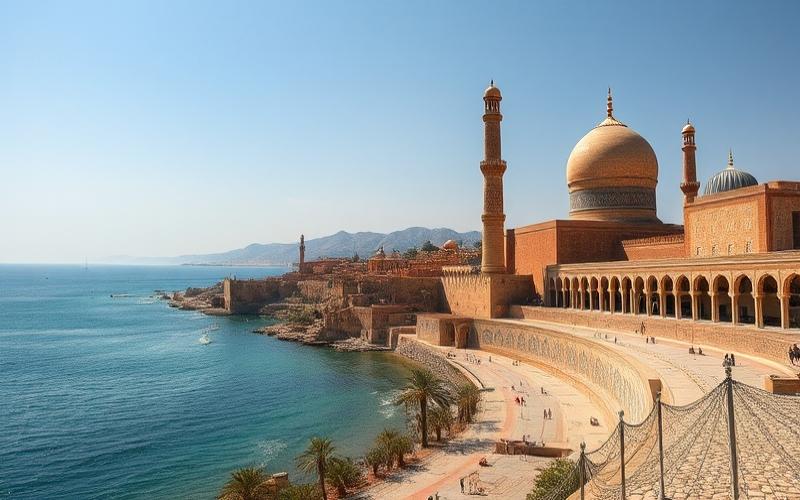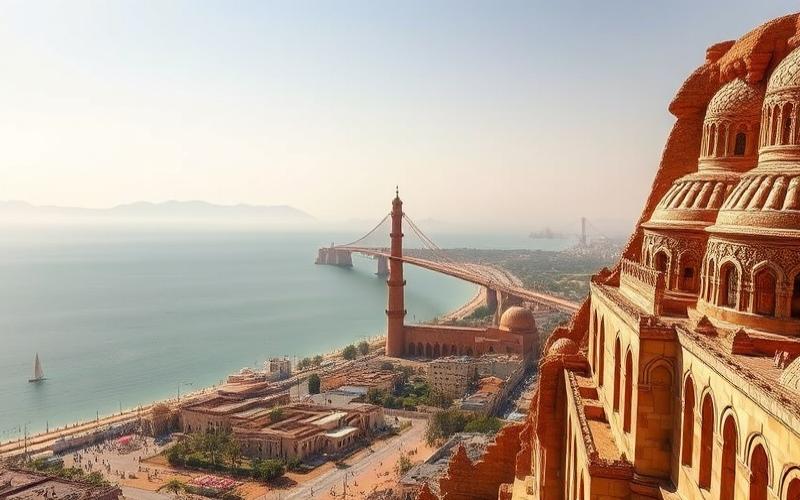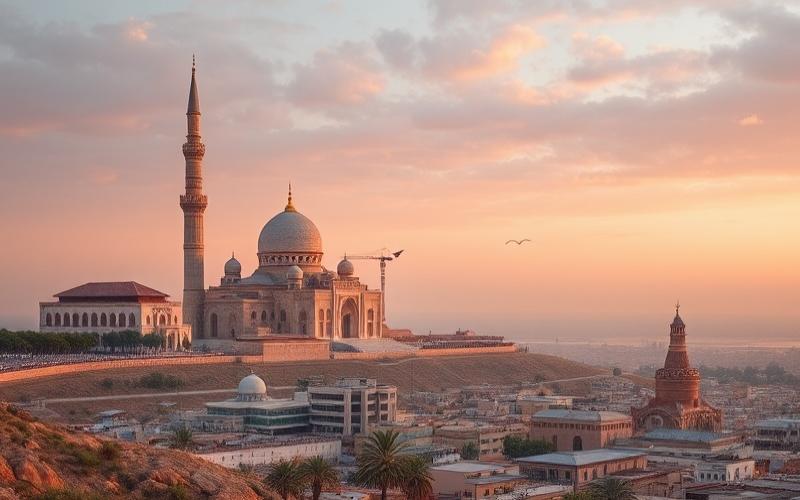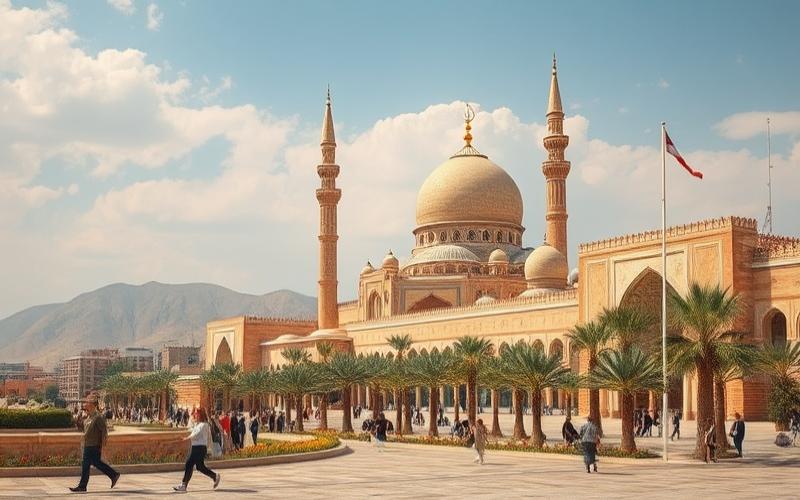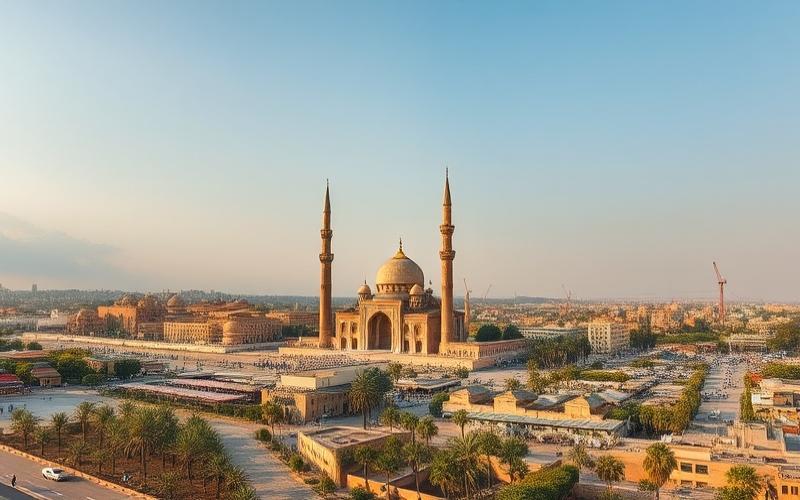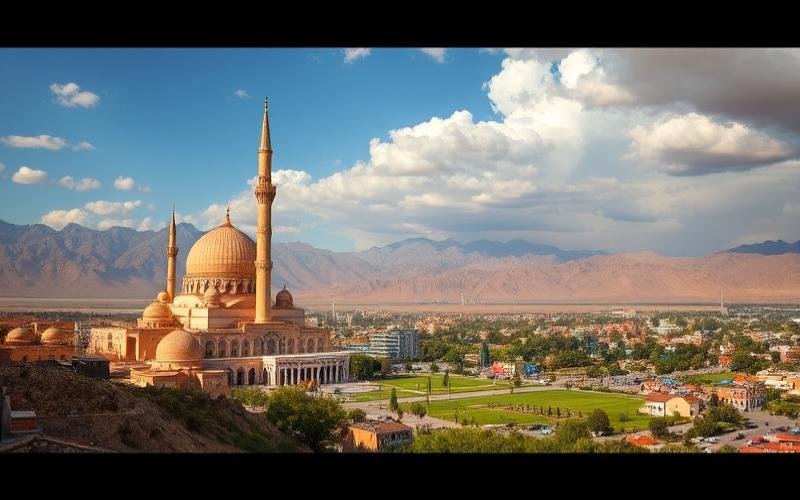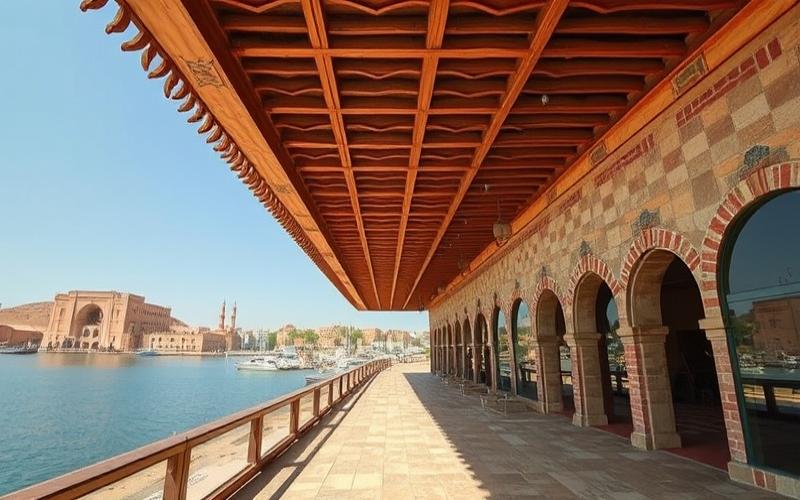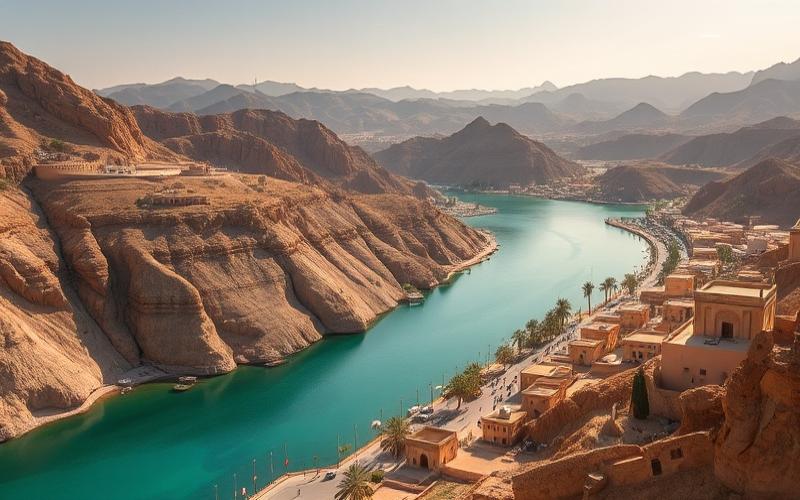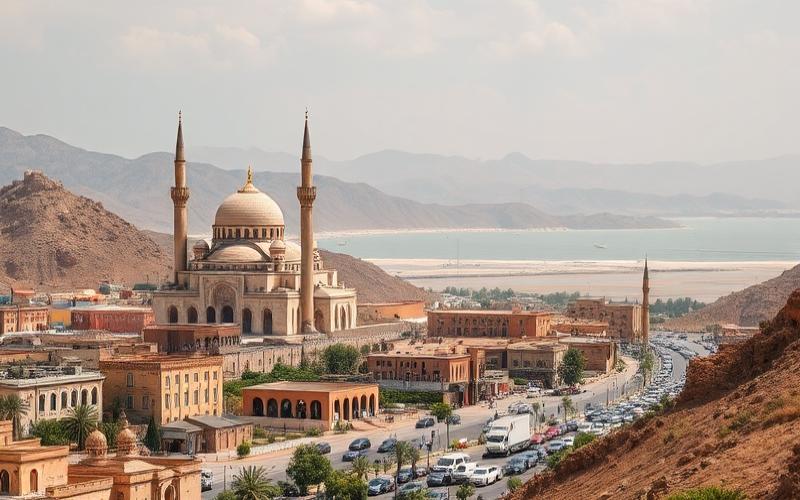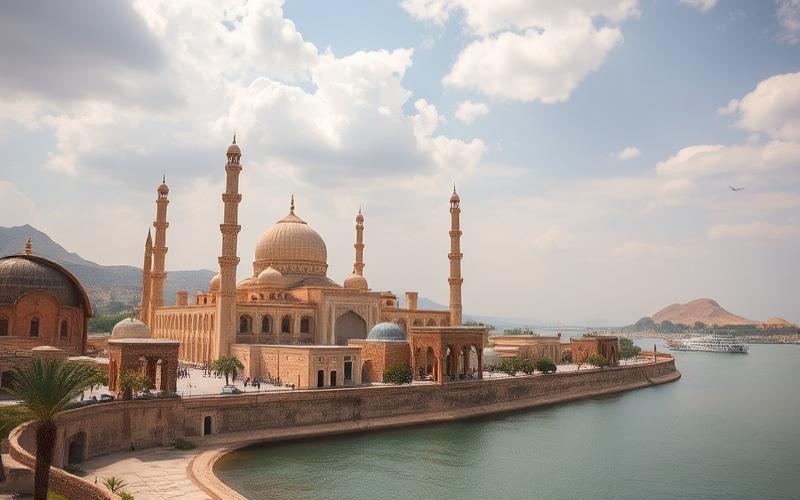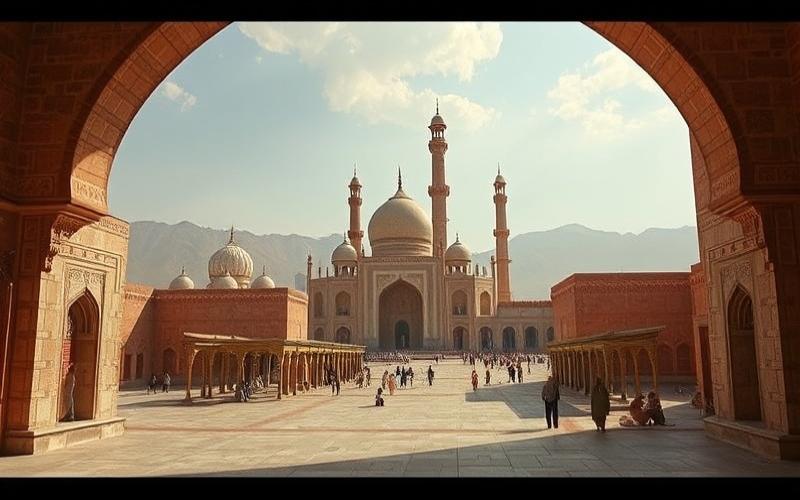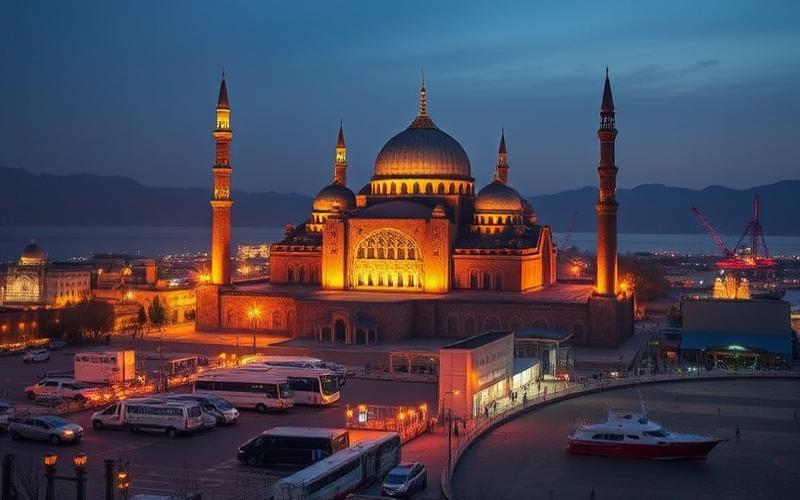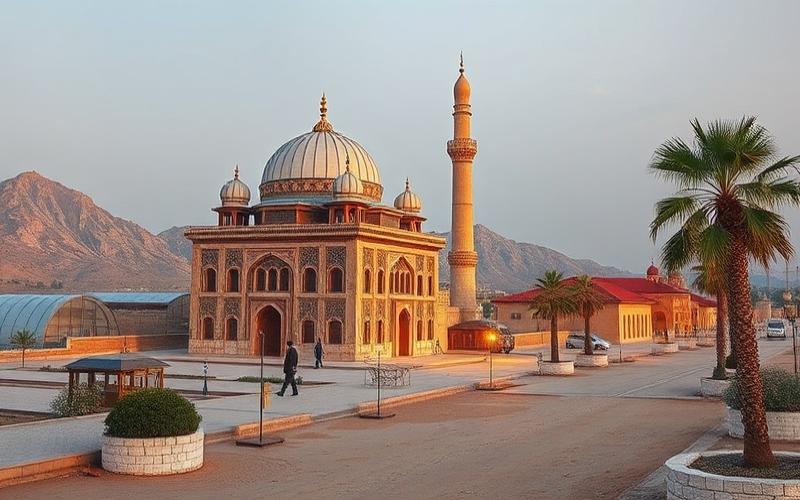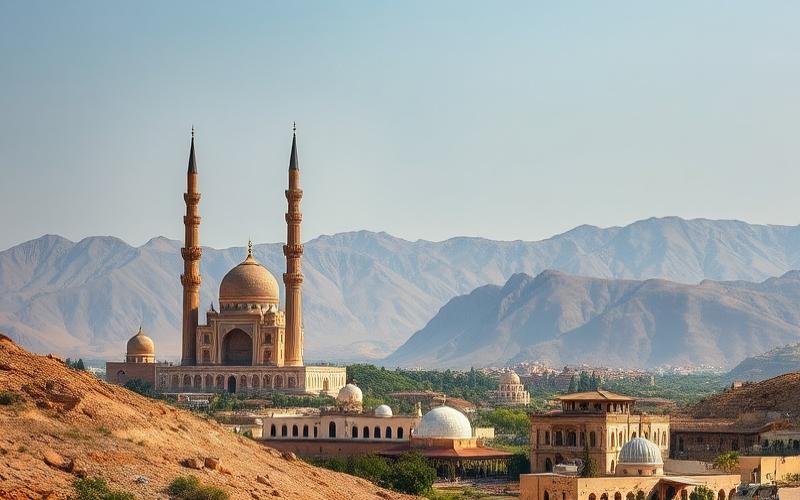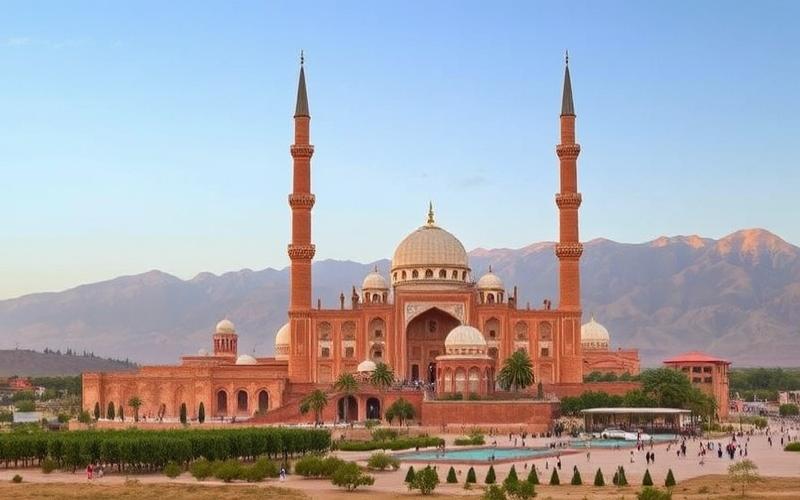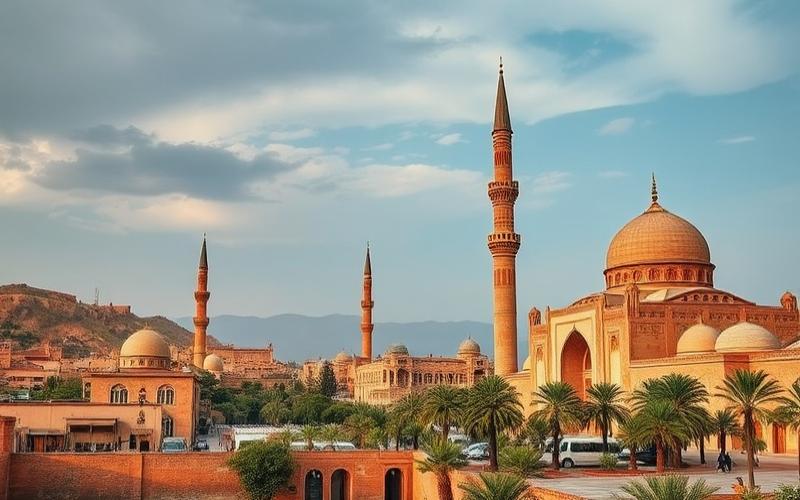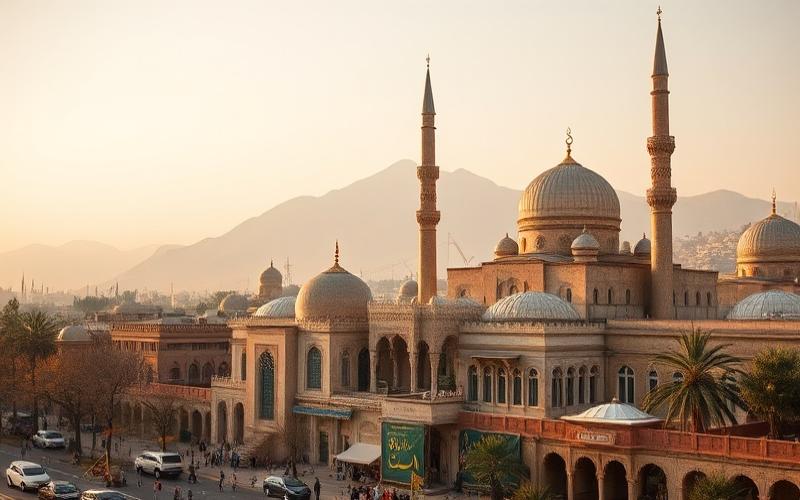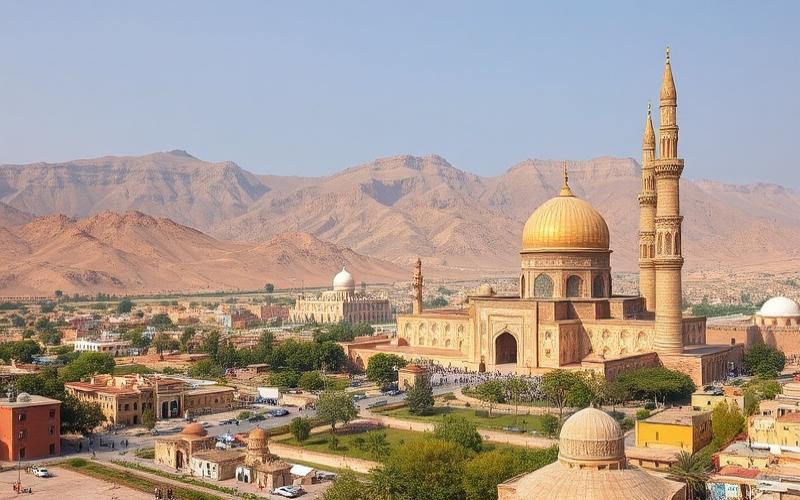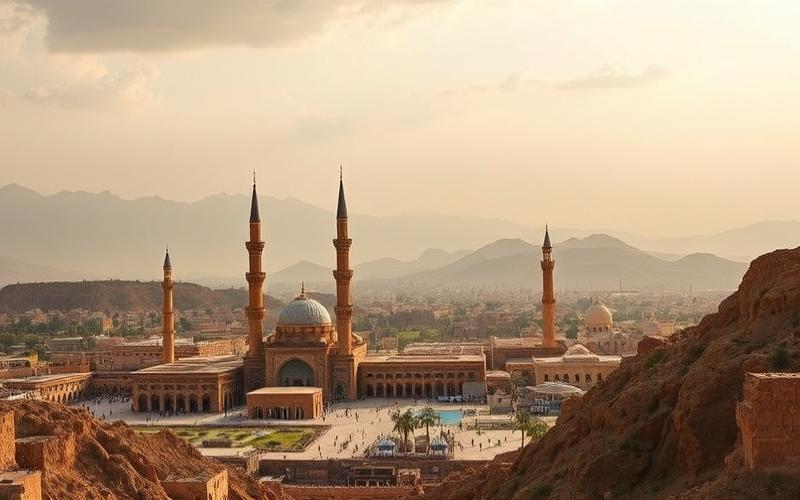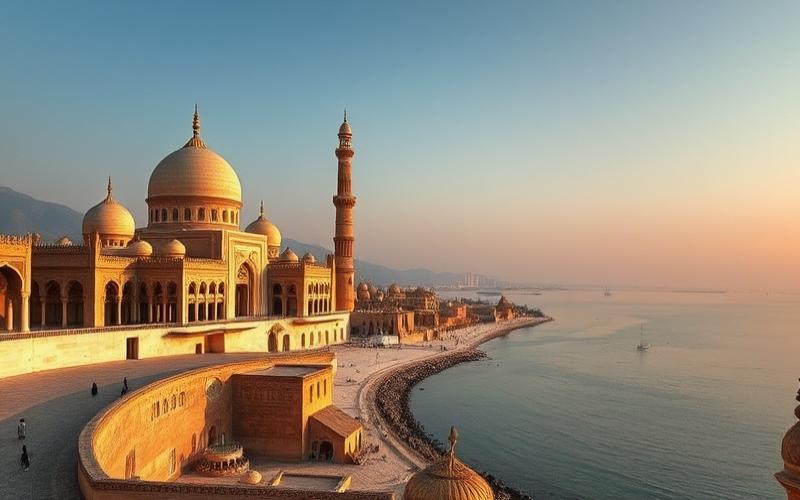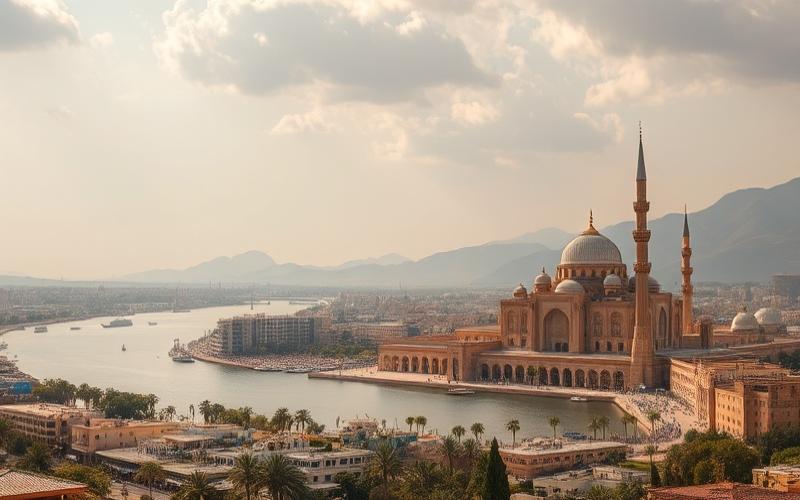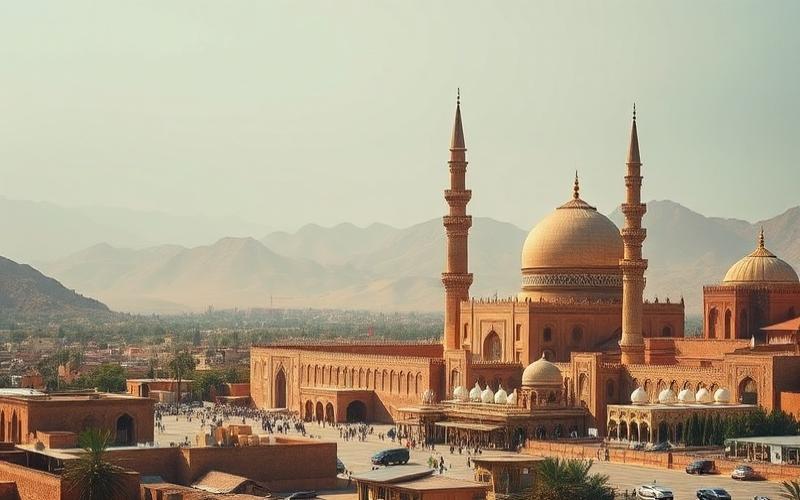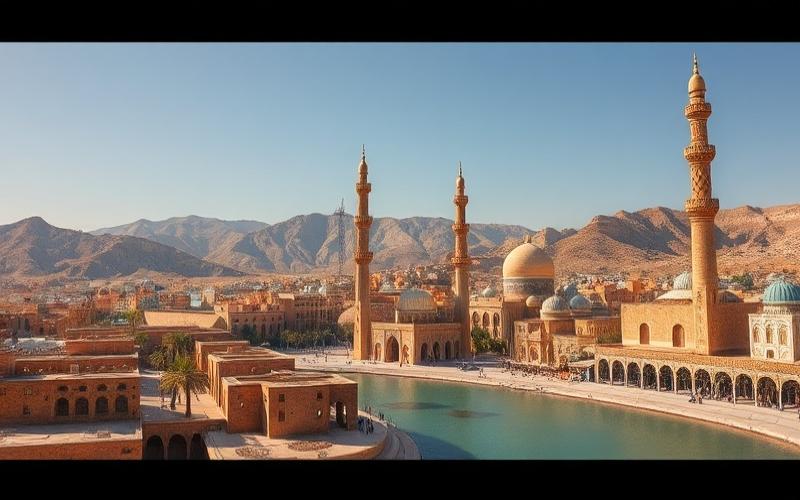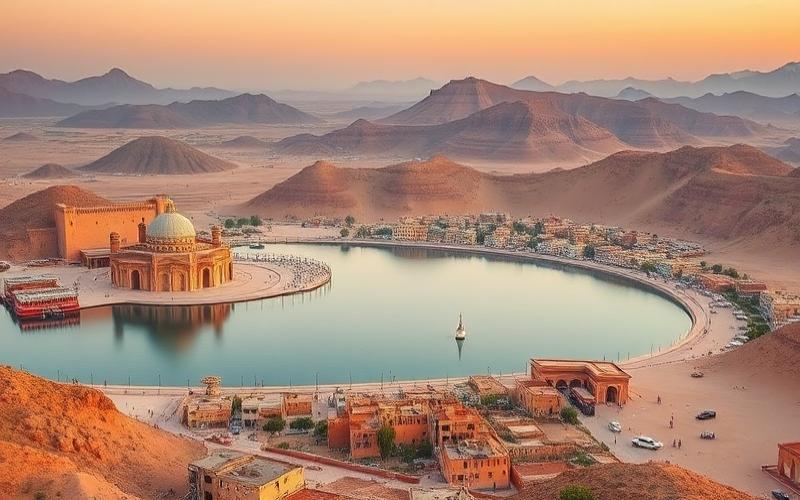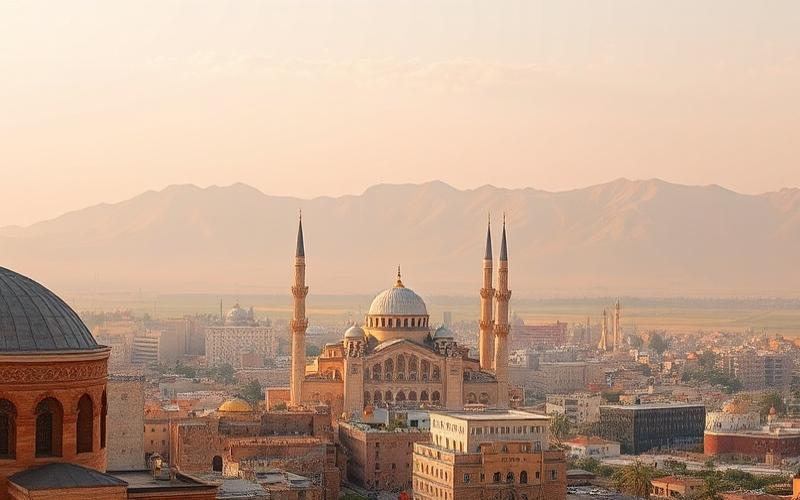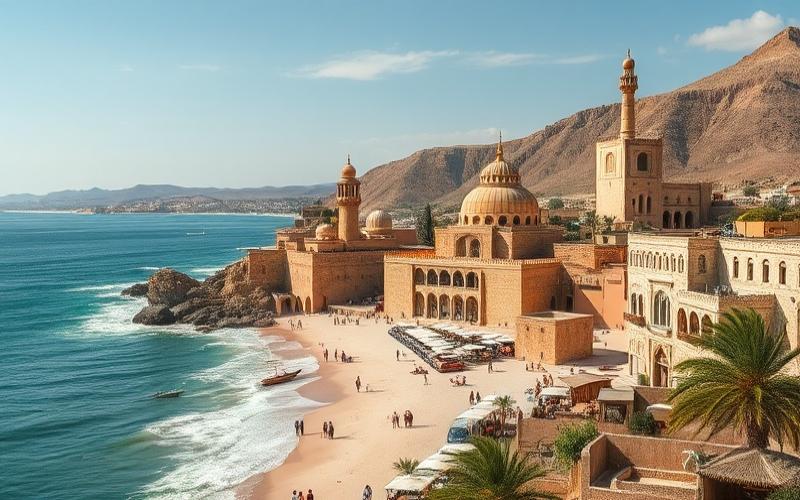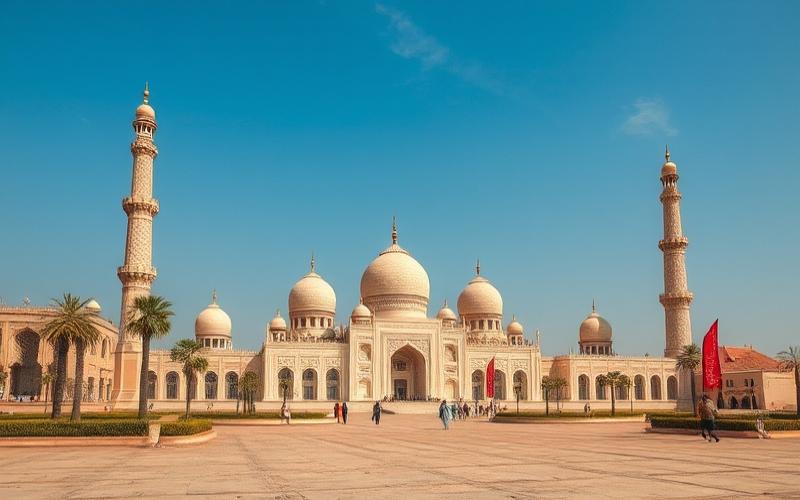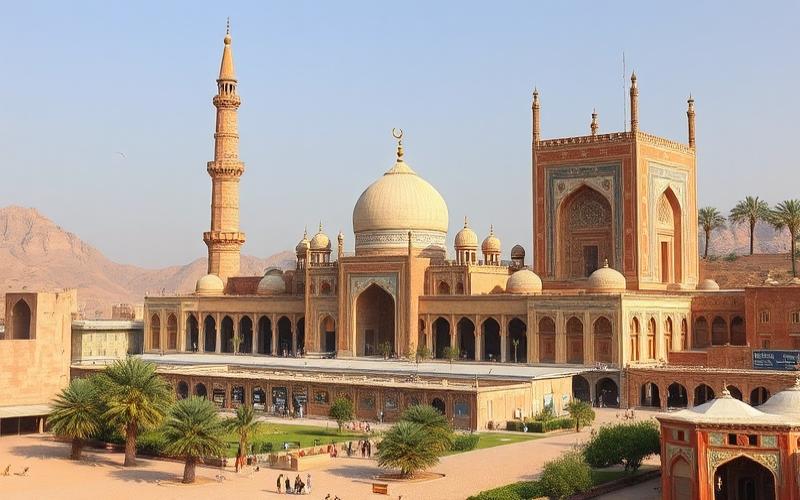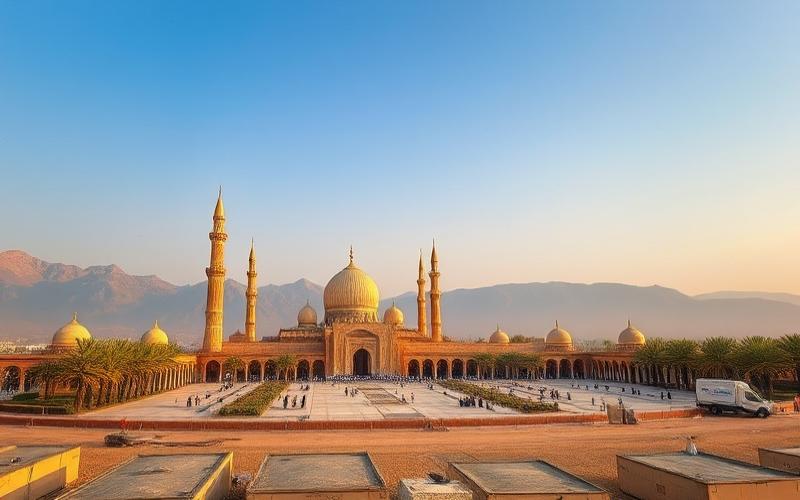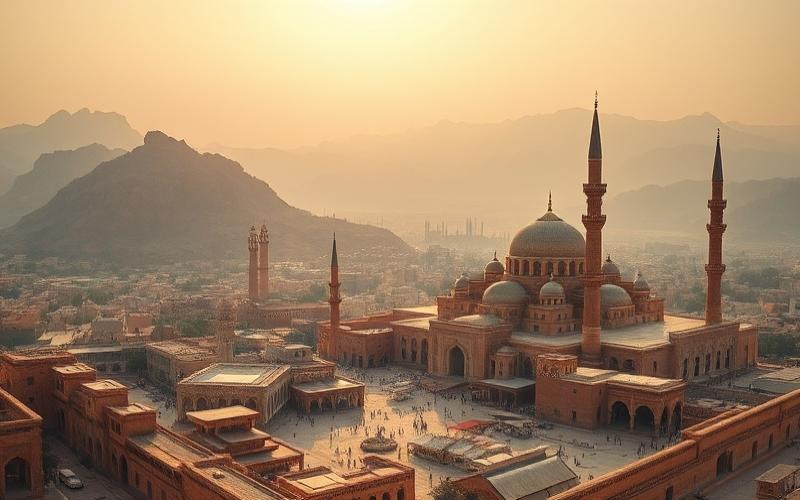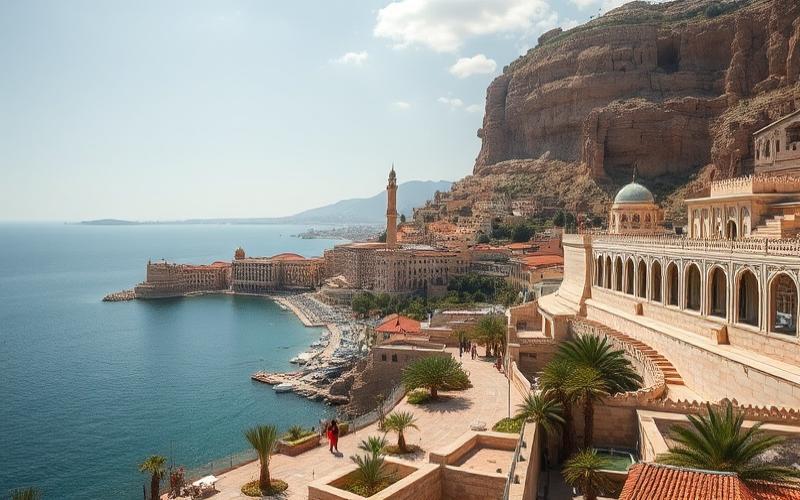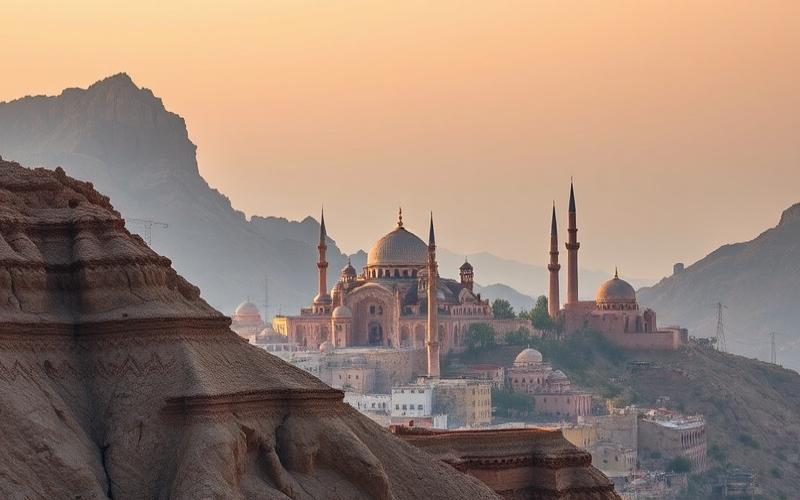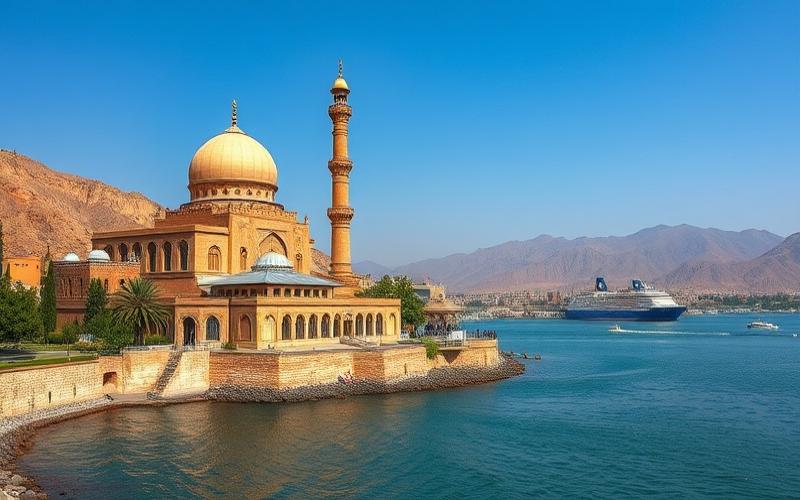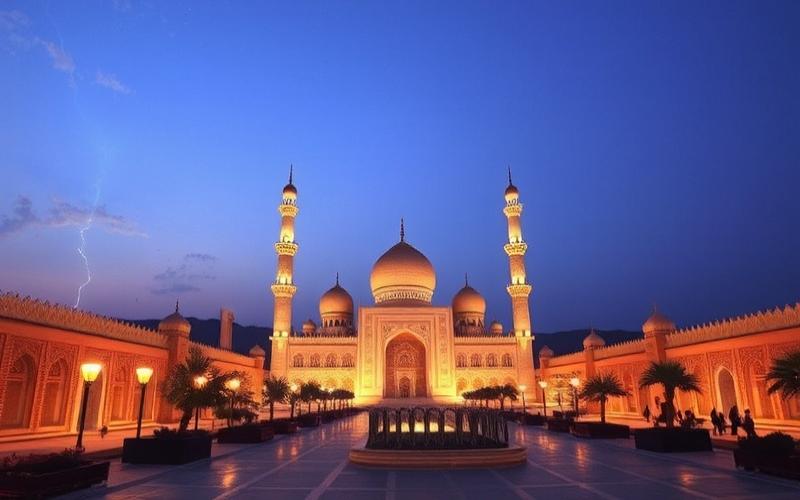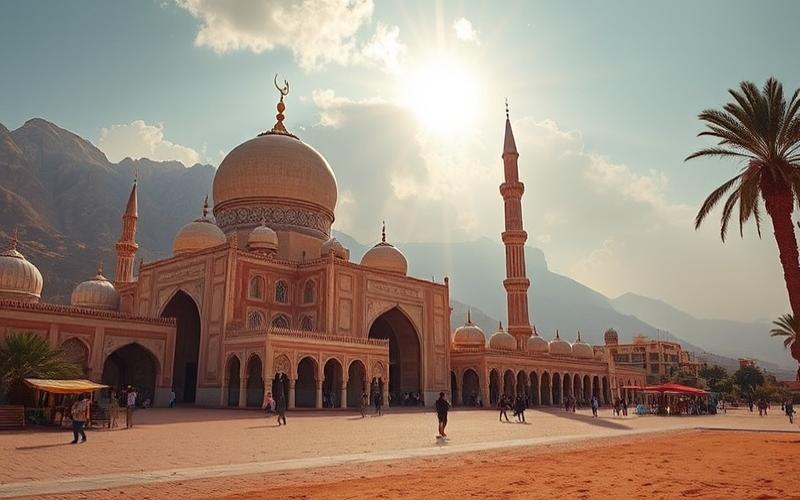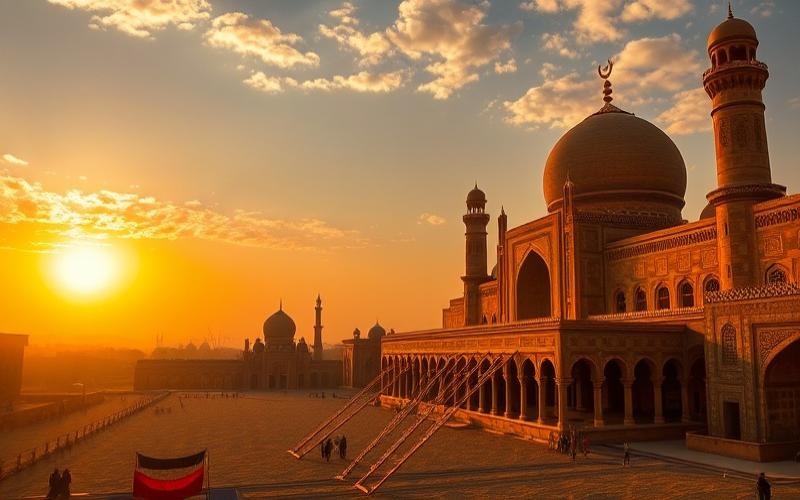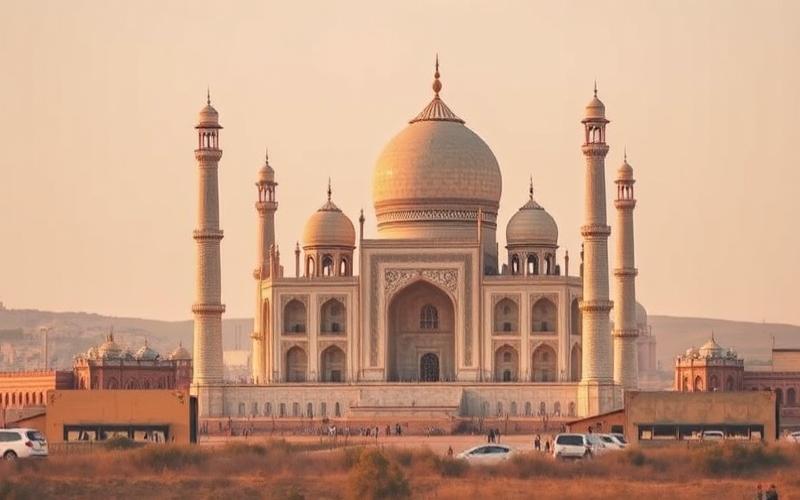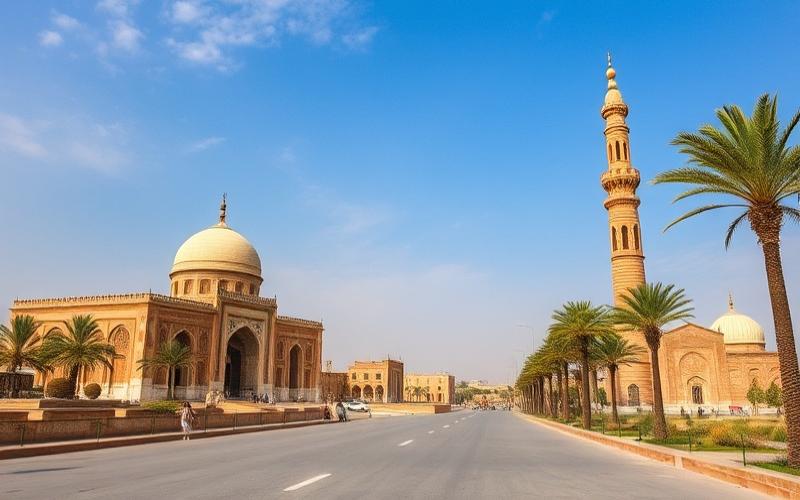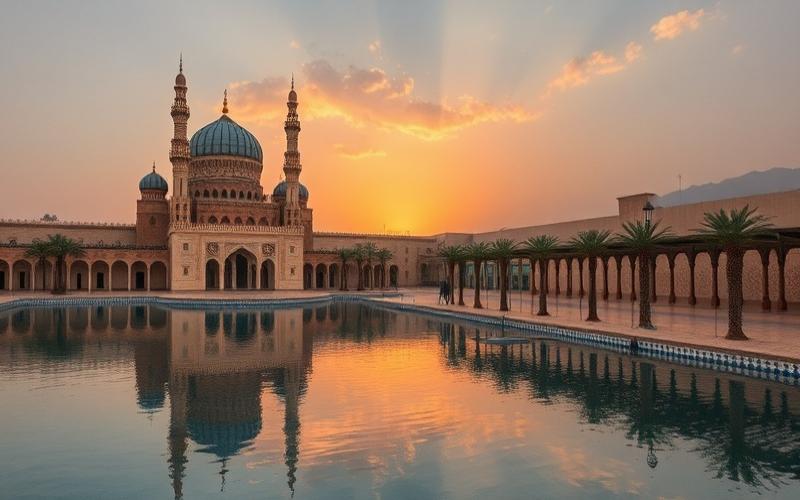
 Published on and written by Cyril Jarnias
Published on and written by Cyril Jarnias
Choosing to settle in Bahrain, this Middle Eastern gem, means immersing yourself in a world where the endless golden desert meets the sparkling waters of the Persian Gulf. However, the key to truly appreciating this exotic destination lies in the ability to adapt to the local climate conditions, which are very different from what many expatriates are used to.
From the summer heatwaves to the pleasantly mild winter days, understanding and adapting to these weather variations is essential for successful integration. In this article, we offer practical advice to not only survive but to fully enjoy your new life under the Bahraini sun.
Adapting to Bahrain’s Climate: Challenges and Opportunities
Bahrain’s Climate Characteristics
Bahrain experiences an arid subtropical climate marked by two main seasons:
- Summer (May to September): Very high temperatures, often exceeding 104°F (40°C), with peaks that can reach 118°F (48°C). Humidity, sometimes close to 95%, makes the atmosphere particularly heavy and oppressive. Nights remain warm (lows around 86°F / 30°C).
- Winter (November to March): Milder temperatures, generally between 57°F (14°C) and 81°F (27°C), sometimes a bit cooler at night. This period is ideal for outdoor activities thanks to pleasant weather and generous sunshine.
| Month | Min Temp (°F) | Max Temp (°F) | Sea Temp (°F) |
|---|---|---|---|
| January | 57 | 68 | 68 |
| March | 64 | 77 | 68 |
| June | 84 | 100 | 88 |
| July | 88 | 102 | 91 |
| August | 88 | 102 | 93 |
| December | 63 | 73 | 72 |
Very low annual rainfall (about 2.8 inches / 72 mm), mainly concentrated in winter. Occasional sandstorms can occur.
Challenges for Expatriates
- Adapt your lifestyle: avoid outings and physical activities during the day in summer, favor early morning or evening hours.
- Choose appropriate clothing: favor light, breathable, and covering fabrics to protect yourself from the sun and humidity.
- Maintain constant hydration: drink regularly, even without feeling thirsty, to compensate for rapid dehydration.
- Get used to air conditioning: increased reliance on air conditioning in homes, offices, stores, and transportation.
- Manage abrupt climate transitions between the very hot outdoors and the air-conditioned indoors, a source of fatigue or discomfort.
- Seek well-insulated housing to limit the energy overconsumption linked to air conditioning.
Opportunities Offered by the Climate
- Outdoor Activities in Winter: beaches, water sports, desert hikes, cultural visits, and local festivals.
- Discovery of the culture of adaptation to the arid climate: traditional architecture (ventilated houses, shaded courtyards), night markets, local cuisine rich in fresh and hydrating dishes.
- Practice of water activities throughout the year thanks to the high sea temperature.
Practical Tips for Adaptation
- Use air conditioning wisely: set to a moderate temperature, ventilate rooms regularly, maintain equipment.
- Favor modern, well-insulated housing equipped with sun protection (shutters, blinds, double glazing).
- Plan essential accessories: sunglasses, hat, high SPF sunscreen, reusable water bottle.
- Organize your leisure activities according to the season:
- In summer: museum visits, aquariums, shopping malls, indoor events.
- In winter: picnics, beaches, bike rides, historical site visits, outdoor markets.
Anecdotes and Expatriate Testimonials
“At first, the heat surprised me, but I quickly learned to go out very early in the morning or after sunset. In winter, I discovered an intense outdoor social life, between beach barbecues and night markets, a real surprise in a desert country.”
“Winter weekends became my favorite moments: we would go explore the desert or have picnics in the parks, while in summer, I enjoyed the modern, air-conditioned facilities to discover Manama’s cultural scene.”
“I understood the importance of well-insulated housing and efficient air conditioning. It makes all the difference, especially for sleeping well during summer nights.”
Summary of Best Practices
- Adapt your rhythm according to the season.
- Favor appropriate clothing and hydration.
- Choose well-insulated and air-conditioned housing.
- Enjoy the cultural and leisure opportunities offered by each season.
- Exchange with locals and other expatriates to discover tips and traditions for adapting to the climate.
Good to Know:
Bahrain offers a desert climate with extremely hot summers, often exceeding 104°F (40°C), requiring continuous hydration and air conditioning, while the milder winters allow for enjoying outdoor activities and exploring the local culture. Expatriates recommend adapting by choosing light clothing and well-insulated housing, while taking advantage of local tours to enrich the experience.
Prevention Strategies for Coping with Extreme Climates
Prevention strategies for extreme climates in Bahrain rely on adaptation to high temperatures, intense humidity, and the frequency of dust storms.
Effective Management of Heat and Humidity:
- Regular hydration: Drink water frequently, even without feeling thirsty, to prevent heatstroke.
- Limitation of physical activities during the hottest hours (between 11 AM and 4 PM), favor early morning or evening.
- Use of shaded or air-conditioned spaces during outdoor travel.
Appropriate Clothing Choices:
- Wear loose, light, and light-colored clothing that facilitates air circulation and reflects sunlight.
- Use wide-brimmed hats, sunglasses, and sunscreen to protect skin and eyes.
Efficient Air Conditioning Technologies:
- Widespread installation of air conditioning units in homes, offices, public and private vehicles.
- Regular maintenance of systems to guarantee their energy efficiency during extreme peaks.
| Strategy | Local Example | Main Benefit |
|---|---|---|
| Optimal Hours | Shifted administrative work | Reduction of thermal risk |
| Traditional Construction | Houses with thick stone walls and interior courtyards | Natural coolness thanks to thermal inertia |
Local Practices Favoring Adaptation to the Desert Climate:
Traditional buildings use thick stone or coral walls that retain interior coolness. Central courtyards allow for natural nighttime ventilation.
Urban planning includes green spaces (mangroves) to mitigate the ambient temperature.
Protection Against Frequent Dust Storms:
List of Recommended Measures:
- Hermetic closure of doors/windows during alerts
- Reinforcement of infrastructure (air filtration in schools/hospitals)
- Wearing anti-dust masks during outdoor travel
Systematic Adoption:
- Municipal early warning systems broadcast by SMS/Radio
- Regular cleaning of public roads after each storm
Available Local Resources:
Specialized Medical Centers:
Rapid assistance in case of heat exhaustion or respiratory complications related to dust
Municipal Services:
Free distribution of drinking water during extreme waves; practical advice via digital platforms; temporary cooling points in vulnerable neighborhoods
Expatriate Associations:
Multilingual guides on local climate adaptation distributed upon installation
For optimal adaptation to the Bahraini desert climate, it is crucial that everyone combines these individual strategies with the use of available community resources.
Good to Know:
To adapt to Bahrain’s extreme climates, it is crucial to favor light clothing, stay regularly hydrated, and limit outdoor activities to the coolest hours, while using local air conditioning technologies and drawing inspiration from traditional constructions to create cool interiors. To protect yourself from dust storms, consider reinforcing infrastructure and follow local system alerts; health centers and municipal services offer valuable support to expatriates for these climate challenges.
Tips for Arranging Your Home According to the Local Climate
Bahrain is characterized by an arid desert climate with two main seasons: an extremely hot and humid summer (from April to October, temperatures often above 100-104°F / 38-40°C, very high humidity), and a mild winter (from November to March, between 57°F / 14°C and 72°F / 22°C).
To Limit Excessive Heat in Buildings:
- Thick walls: Increase thermal inertia and reduce the penetration of external heat.
- Reflective roofs (light-colored paints or reflective membranes): Reflect part of the solar radiation, lowering the interior temperature.
- Double-glazed windows: Limit thermal exchanges while improving acoustic insulation.
Tips for Optimizing Indoor Comfort:
Favor effective natural ventilation, for example with strategically positioned openings to create cross-ventilation. Integrating adjustable ventilation grilles allows for regulating the flow according to the direction of the prevailing wind.
Install sun protection systems such as:
- Pergolas
- Shade sails
- Adjustable sunbreakers
These devices provide shaded outdoor areas that reduce the direct heating of walls and windows.
Solutions for Mastering Air Conditioning While Limiting Energy Consumption:
- Choose efficient air conditioning adapted to the treated volume (energy class A or higher).
- Program operating schedules according to the actual occupancy of the home.
- Ensure good overall insulation so that the system does not unnecessarily compensate for thermal losses.
Essential Maintenance:
Ensuring regular maintenance (cleaning/replacing filters, checking refrigerants) guarantees the maximum efficiency of all installed cooling systems.
Reduction of the Urban Heat Island Effect Around the Building Thanks to:
| Vegetative Solution | Main Advantages |
|---|---|
| Planting local resistant species | Low water requirement, optimal adaptation |
| Green roofs/gardens | Localized passive cooling |
| Hedges or deciduous trees | Natural shading on exposed facades |
Some Additional Recommendations:
- Always favor materials adapted to the local climate.
- Combining passive solutions (insulation/shading/vegetation) and active ones (optimized air conditioning) offers the best compromise between indoor thermal comfort and energy efficiency.
Good to Know:
To survive Bahrain’s arid heat, favor the use of materials like thick walls and reflective roofs, and integrate double-glazed windows for optimal insulation, while promoting natural ventilation and the installation of shading systems like pergolas to mitigate the heat island effect and improve indoor comfort.
Impact of Climate on Expatriates’ Health and Well-being
Bahrain is characterized by high summer temperatures, frequently exceeding 104°F (40°C) between June and September, combined with a humidity rate that can reach 80%. This combination makes the heat particularly taxing for unacclimated expatriates.
Risks Linked to Extreme Heat:
- Heatstroke: Occurs when the body can no longer regulate its temperature, causing high fever, confusion, or loss of consciousness.
- Dehydration: Accelerated by heavy sweating; frequent symptoms in new arrivals (headaches, intense fatigue).
- Degraded sleep quality: Nights remain hot and humid, even in summer, disrupting deep sleep and promoting irritability or a drop in daytime energy.
- Impacted general well-being: Increased chronic fatigue during heatwaves; necessity to adapt one’s daily rhythm.
| Risk | Symptoms/Consequences | Aggravating Factors |
|---|---|---|
| Heatstroke | Fever >102°F (39°C), confusion | Prolonged sun exposure |
| Dehydration | Headaches, dizziness | Low water consumption |
| Sleep disorder | Insomnia, daytime fatigue | High nighttime temperature |
The high humidity, typical in summer on the Bahraini archipelago:
- Accentuates the thermal sensation (“humidex”), making the air heavy.
- Can worsen certain respiratory pathologies (asthma/allergies) due to the lack of natural ventilation in some poorly insulated homes.
- Promotes the development of mold in poorly ventilated dwellings.
To Limit These Effects on Physical and Mental Health:
Essential Adaptation Strategies
- Drink regularly (minimum 2 liters/day), even without thirst
- Favor light/light-colored clothing in natural fibers
- Apply high SPF sun protection before any outing
- Limit physical activity to cool hours (morning/late evening)
- Take regular breaks in the shade or in air-conditioned spaces
Specific Advice Reported by Expatriates Settled in Bahrain
“The very hot climate is made more bearable thanks to fully air-conditioned houses. You quickly get used to the local rhythm: getting up early to enjoy the coolness then indoor life during the hot hours.”
“I avoid any outdoor activity between noon and 4 PM. Easy access to air-conditioned shopping malls allowed me to continue my leisure activities without suffering from the extreme temperatures.”
“My well-being depends a lot on strict adherence to measures against the sun: constant hydration for me and my children!”
The capacity for adaptation therefore relies on:
- The systematic use of air conditioners in all public/private places,
- A daily organization adapted to the climate,
- A strong community support among expatriates facilitating the sharing of local tips/good deals.
Lasting success comes from attentive listening to the body, increased vigilance towards the first signs related to heat/humidity, and an adjusted lifestyle — both physically and mentally — so that everyone can serenely enjoy the unique dynamism that Bahrain offers despite its climatic constraints.
Good to Know:
Bahrain’s high temperatures increase the risks of heatstroke and dehydration, making regular hydration and sun protection crucial; high humidity can worsen respiratory problems, compromising sleep and general well-being. Expatriates testify that breaks in the shade and the use of air conditioning are essential to adapt and preserve their health.
Disclaimer: The information provided on this website is for informational purposes only and does not constitute financial, legal, or professional advice. We encourage you to consult qualified experts before making any investment, real estate, or expatriation decisions. Although we strive to maintain up-to-date and accurate information, we do not guarantee the completeness, accuracy, or timeliness of the proposed content. As investment and expatriation involve risks, we disclaim any liability for potential losses or damages arising from the use of this site. Your use of this site confirms your acceptance of these terms and your understanding of the associated risks.

